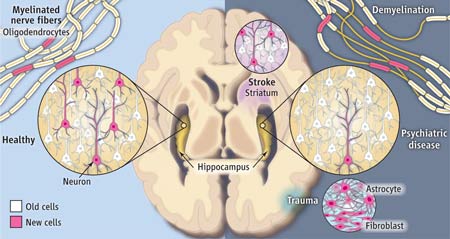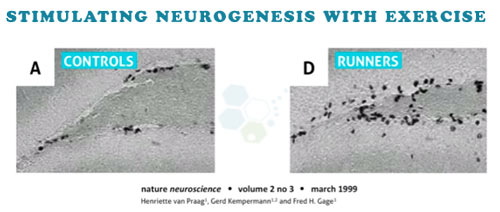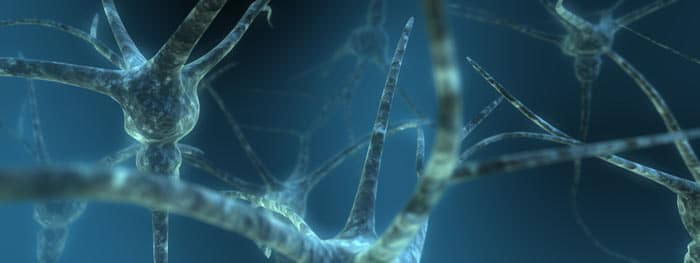Can adult humans grow new neurons naturally?
Until very recently, most scientists believed it was not possible. A recent study at the Karolinska Institutet in sweden believes otherwise and have recently shown that the process of neurogenesis can be controlled and monitored naturally helping our brain to reverse damage and provide relief for patients with degenerative neurological diseases such as Parkinson’s, Alzheimer’s, MND, ALS or for traumatic events like TBI and Brain Strokes.
It is estimated that our brain generates only 700 -1000 neurons per day. The neuron cells are produced in 3 distinct areas of the brain including the hippocampus, subventricular zone and dentate gyrus which is responsible for the process of learning and memory. Humans are born with hundreds of billions of neural cells and it would take us hundreds of years to create enough cells naturally to replace the amount we were born with.
What is Neurogenesis?
Neurogenesis, the process of generating new neurons in the brain, presents a fascinating area within neuroscience with several intriguing facts:
- Adult Brain Neurogenesis: Contrary to long-held beliefs, neurogenesis occurs not only during embryonic development but also in some adult brain regions, notably in the hippocampus and the subventricular zone. This discovery overturned the old dogma that new neurons could not be generated in the adult brain.
- Stem Cells as Key Players: Neural stem cells (NSCs) are central to developing and maintaining the mammalian brain’s tissues. They can give rise to new cells, replenishing dead or worn-out cells and contributing to the brain’s plasticity and repair mechanisms.
- In Vitro Culturing and Regenerative Medicine: Identifying and culturing NSCs have significantly advanced our understanding of the brain’s physiology and pathology. It has opened pathways for developing cell replacement therapies for neurological disorders, providing hope for treating conditions such as Alzheimer’s disease, Parkinson’s disease, and traumatic brain injury.
- 3D/Organoid Cultures: The advent of induced pluripotent stem cell (iPSC) technology and 3D organoid cultures has revolutionized neuroscience research. These technologies allow for the generation of patient-specific stem cells and the modelling of brain organoids that mimic the complexity of the brain’s architecture and function, offering new insights into brain development, disease mechanisms, and potential therapeutic targets.
- Challenges in Clinical Translation: Despite the promising neuro regenerative events observed in preliminary studies, translating these findings into effective clinical therapies remains challenging. This gap highlights the need for a deeper understanding of NSCs, the microenvironment influencing their characteristics, and the development of reliable, safe, and effective cell replacement strategies.
- Historical Perspective: The journey from the belief that neurogenesis does not occur in the adult human brain to the current understanding of NSCs underscores a significant shift in neuroscience. Pioneering work by researchers such as Joseph Altman, who suggested the presence of dividing cells in the adult brain, laid the foundation for today’s dynamic field of neurogenesis research.
- Technological Advances: Techniques developed over the 20th century, from culturing nervous tissue in vitro to the isolation and propagation of NSCs using specific growth factors, have facilitated the exploration of the nervous system in unprecedented ways. These advances have enabled modelling femoral nerve pain and various neuropathological conditions and opened new avenues for therapeutic interventions.
- Ethical and Scalability Challenges: While NSC-based therapies offer great promise for treating neurological conditions, they also raise ethical concerns, particularly regarding the source of stem cells. Additionally, scalability and reproducibility issues pose significant challenges for the widespread application of these therapies.
These facts highlight the complexity and potential of neurogenesis research, emphasizing its importance in understanding the brain’s capacity for repair and regeneration and the challenges that lie ahead in translating these discoveries into clinical therapies for use in 2024
New Brain Cells in a Lifetime
It is estimated that we are born with nearly 100 billion neural cells in our spine and brain region. By around age of 3 neurogenesis seems to disappears in all regions with the exception of hippocampal neurogenesis. It is thought that perhaps during evolution our DNA traded its capacity to regenerate new motor cells & brain cells for the stability of our existing brain cells.

How to Control Adult Neurogenesis?
Generally neural cell replacement therapy requires neural cell transplants with progenitors that help give rise to new neuron cells from differentiated astrocytes or oligodendrocytes. A recent ted talk discussed other more natural ways for us to generate new brain cells using a combination of best foods for arthritis and exercise as the foundation of natural neural cell proliferation.
Natural ways to increase Neurogenesis include:
- Intermittent fasting between meals along with calorie restriction diet 20-30% less than average intake.
- Regular intake of flavonoids compounds that are found in blueberries and dark chocolate
- Regular intake Omega-3 fatty acids that are found in fatty fish such as salmon.Learn about benefits of healthy fats
- Aerobic and cardiovascular exercise

Habits that inhibit and have a negative impact on Neurogenesis include:
- Diets rich in saturated fat and sugars
- Ethanol and frequent intake of alcohol ( excluding resveratrol found in red wine)
- Sedentary lifestyle and lack of regular exercise
- Deficiency in Vitamins A,B or D
- Regular Stress, lack of proper sleep, and the natural aging process
The potential for us to harness the natural neurogenic processes for therapeutic interventions and regenerative medicine may one day allow us the ability of a “reset switch” helping reverse degenerative diseases or enhance the overall quality of life by allowing our brains to continually grow late into adulthood.

